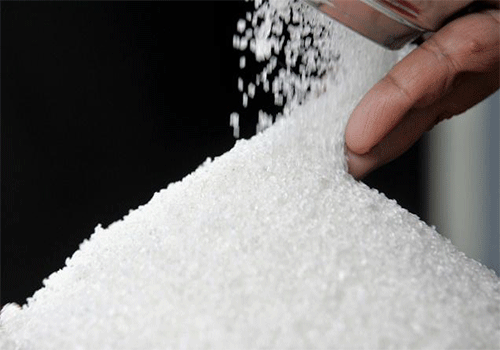BASF และ Renmatix จับมือพัฒนาการผลิตน้ำตาลอุตฯ จากมวลชีวภาพ
POSTED ON 19/12/2556

ข่าวเทคโนโลยี - บริษัท บีเอเอสเอฟ (BASF) ซึ่งตั้งอยู่ในเมืองลุดวิกชาเฟน ประเทศเยอรมนี และ บริษัท เรนเมทิกซ์ อิงค์ (Renmatix Inc.) บริษัทสัญชาติอเมริกัน ซึ่งเป็นผู้ให้บริการด้านเทคโนโลยี ซึ่งตั้งอยู่ในเมืองฟิลาเดลเฟีย รัฐเพนซิลวาเนีย จะร่วมกันพัฒนากระบวนการ Plantrose ของเรนเมทิกซ์ เพื่อการผลิตน้ำตาลที่ใช้ในอุตสาหกรรมจากชีวมวลอินทรีย์ (Lignocellulosic Biomass) ทั้ง 2 บริษัทได้ลงนามในสัญญาความร่วมมือแบบไม่ผูกขาดแล้ว ทั้ง 2 ฝ่ายยอมรับข้อกำหนดด้านการเงินหลักๆสำหรับใบอนุญาตเชิงพาณิชย์ในอนาคต ซึ่งบีเอเอสเอฟสามารถดำเนินการได้ตามดุลพินิจของบริษัท ความร่วมมือดังกล่าวเกิดขึ้นหลังจากที่บีเอเอสเอฟเข้าลงทุนในบริษัทเรนเมทิกซ์เป็นมูลค่า 30 ล้านดอลลาร์ เมื่อเดือนมกราคม 2555
เทคโนโลยี Plantrose ที่พัฒนาขึ้นโดยเรนเมทิกซ์ เป็นกระบวนการต้นทุนต่ำที่ใช้ผลิตน้ำตาลเชิงอุตสาหกรรมจากทรัพยากรชีวมวลที่ไม่ใช่อาหาร (ชีวมวลอินทรีย์) หลากหลายชนิด วิธีการที่เป็นลิขสิทธิ์ของบริษัทนี้ช่วยลดการใช้ทรัพยากรอินทรีย์ (อาทิ ไม้ กากเหลือใช้จากการเกษตร หรือฟางข้าว) ในการทำน้ำตาลเชิงอุตสาหกรรมที่ใช้วิธีแยกสารสกัดด้วยของไหลยิ่งยวด (การใช้น้ำที่มีความดัน และอุณหภูมิสูง) น้ำตาลที่ใช้ในอุตสาหกรรมเป็นหน่วยโครงสร้างที่สำคัญสำหรับสารเคมี และสารมัธยันตร์หลากหลายชนิด ซึ่งสามารถผลิตได้โดยวิธีหมักเป็นต้น สภาพพร้อมใช้ประโยชน์ของน้ำตาลในอุตสาหกรรมเหล่านี้ในปริมาณที่เพียงพอและต้นทุนต่ำถือเป็นปัจจัยสำคัญต่อผลิตภัณฑ์ชีวะที่ทั้งเป็นมิตรต่อสิ่งแวดล้อมและสามารถแข่งขันด้านราคาได้ การรวมวัตถุดิตั้งต้นมวลชีวภาพเป็นขั้นตอนแรกในห่วงโซ่คุณค่า ซึ่งทำให้เกิดการเปลี่ยนแปลงวัตถุดิบที่สามารถลดการใช้วัตถุดิบแบบเดิมๆได้ อาทิ การใช้น้ำมันแนฟทาเป็นวัตถุดิบตั้งต้นหลัก เป็นต้น
โครงการต่างๆที่เกี่ยวข้องกับการเปลี่ยนแปลงวัตถุดิบที่สร้างศาสตร์เทคโนโลยีที่สำคัญในแผนกรีเสิร์ช เวอร์บันด์ (Research Verbund) ของบีเอเอสเอฟ ทีมผู้เชี่ยวชาญของบีเอเอสเอฟมีหน้าที่พิสูจน์กระบวนการที่น่าสนใจต่างๆสำหรับการใช้ประโยชน์วัตถุดิบทางเลือก อาทิ พลังงานทดแทน ก๊าซธรรมชาติ และคาร์บอนไดออกไซด์
ดร.ปีเตอร์ ชูห์มัคเกอร์ (Peter Schuhmacher) ประธานศูนย์วิศวกรเคมี และการวิจัยกรรมวิธีของบีเอเอสเอฟ กล่าวว่า "การเปลี่ยนแปลงวัตถุดิบ จะสามารถนำมาใช้ได้กับนวัตกรรมกระบวนการที่ใช้ประโยชน์จากวัตถุดิบทางเลือกได้เท่านั้น ซึ่งต้องใช้กรรมวิธีอย่าง Plantrose ที่จะมีการพัฒนาต่อยอดด้วยความร่วมมือกัน ทำให้สามารถใช้มวลชีวภาพที่ไม่ใช่อาหารมาเป็นสารตั้งต้นทางเคมีได้ และจะไม่ขัดแย้งกับการผลิตอาหาร หรืออาหารสัตว์ กระบวนการ Plantrose ช่วยเติมเต็มความต้องการในการใช้วัตถุดิบทดแทนของเรา ซึ่งจะช่วยให้เราสามารถสนับสนุนลูกค้าในการพัฒนาโซลูชั่นที่นำมาซึ่งการพัฒนาอย่างยั่งยืนอีกด้วย"
ไมค์ แฮมิลตัน (Mike Hamilton) ซีอีโอบริษัท เรนเมทิกซ์ กล่าวว่า "กว่า 2 ปีที่ผ่านมา บีเอเอสเอฟได้ลงทุนทั้งด้านเวลา และเงินทุนมหาศาล เพื่อสนับสนุนความพยายามในการดำเนินงานต่างๆที่เรนเมทิกซ์ ณ เรนเมทิกซ์ เราให้ความสำคัญกับการส่งเสริมตลาดชีวเคมีที่เกิดใหม่ด้วยการเปิดทางให้บรรดาผู้นำที่มีความก้าวหน้าเข้ามาพัฒนาขีดความสามารถของกระบวนการ Plantrose เพื่อเพิ่มช่องทางเข้าถึงน้ำตาลเชิงอุตสาหกรรมราคาถูกในอุตสาหกรรมเคมีทั่วโลก"
BASF, Ludwigshafen, Germany, and American technology provider Renmatix Inc. of Philadelphia, Pennsylvania, will jointly scale up the Renmatix Plantrose process for the production of industrial sugars based on lignocellulosic biomass. The two companies signed a non-exclusive joint development agreement. The parties have agreed to key financial terms for future commercial licenses, which BASF can exercise at its discretion. The collaboration follows BASF's $30-million investment in Renmatix in January 2012.
The Plantrose technology developed by Renmatix enables industrial sugar to be produced, at competitive costs, from a variety of non-edible biomass (lignocellulose) sources. The proprietary process breaks down lignocellulosic sources (e.g. wood, agricultural-residues or straw) into industrial sugars using supercritical water (water at high temperature and pressure). Industrial sugars are important building blocks for various basic chemicals and intermediates that can be produced, for example, by fermentative processes. The availability of these industrial sugars in sufficient quantities and at competitive cost is important to enable both environmentally-friendly and cost-competitive bio-based products. Incorporating biomass feedstocks as a first step in the value chain, creates a raw material change that can reduce reliance on fossil raw material sources like naphtha as principal feedstock.
Projects relating to the topic of raw material change make up one important technology field in BASF's Research Verbund. BASF experts are engaged in identifying interesting processes for utilizing alternative raw materials, such as renewables, natural gas, and CO2.
"Raw material change will only be possible via process innovations that allow the utilization of alternative sources of raw materials," said Dr.Peter Schuhmacher, President of BASF's competence center Process Research and Chemical Engineering. "It requires processes like Plantrose, which will be further developed in a joint effort, that enable the use of non-edible biomass as a chemical feedstock and which do not compete with food or feed production. The Plantrose process addresses our needs for renewable raw materials. It will help us to support our customers in developing solutions that contribute to sustainable development."
"Over the past two years, BASF has made significant investments of time and capital to support our efforts at Renmatix," said Mike Hamilton, CEO of Renmatix. "At Renmatix we are focused on supporting the emerging biochemical market by enabling progressive leaders to scale up Plantrose capacity to increase the global chemical industry's access to cost-effective industrial sugars."

